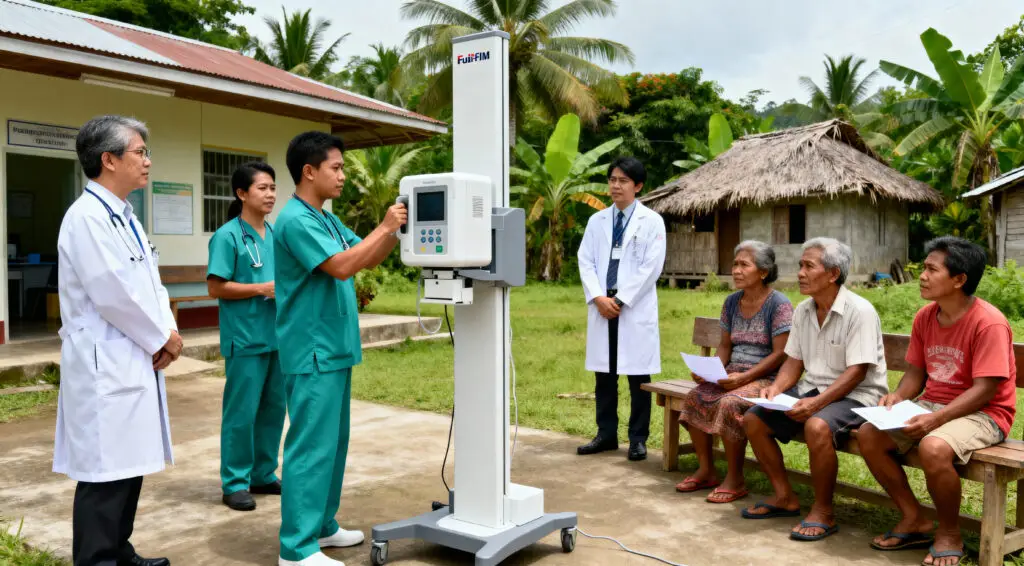Japan and the Philippines Partner to Modernize Tuberculosis Detection
The Philippines and Japan have inked a historic health grant to use AI-powered technologies to make TB screening better. The goal of the project is to improve early diagnosis and treatment in remote and poor sections of the nation.
The Department of Health (DOH) and the Embassy of Japan made the agreement official. It marks a new milestone in collaboration between the two countries that focuses on new ideas in public health and making sure everyone can get life-saving treatment.

Source: SunStar
Deployment of AI-Powered X-Ray Units to Rural Communities
The award will pay for the delivery of 20 ultraportable X-ray equipment from FujiFilm to villages that are far away from each other. These portable diagnostic machines have AI built in to make TB screening faster and more accurate.
Teodoro Herbosa, the Secretary of Health, said that the technology will assist in finding instances earlier and stop them from spreading. The DOH wants to offer modern healthcare straight to people who don’t have it by using powerful AI algorithms.
AI Detection Technology Accelerates Screening and Treatment
The battery-powered X-ray machines come with computer-aided detection (CAD) software that can analyze images in real time. This new technology lets healthcare staff find possible TB cases in seconds, even if they don’t have a lot of experience with radiography.
Such quick identification makes it possible to start therapy right away and have better results in controlling the condition. The technology also helps the national health system collect data for continuing TB research and monitoring.
Recommended Article: Philippine Peso Falls to Record Low of ₱59.13 Against US Dollar
Addressing the Philippines’ Persistent TB Burden
The Philippines still has one of the highest rates of TB in the world, with more than 540,000 cases and 10,000 fatalities in 2024. A lot of instances go undetected since it’s hard to get to healthcare institutions in distant locations.
Officials expect that the new AI-powered gadgets will help fill this diagnostic gap by reaching groups who don’t usually get routine screenings. The project adds to the work that is already being done by the National Tuberculosis Control Program.
Strengthening Japan-Philippines Health and Technology Cooperation
The Japanese Embassy said that the project shows Japan’s dedication to helping Southeast Asia build strong healthcare systems. This alliance is based on years of working together on medical research, creating capacity, and exchanging technologies.
Japan strengthens its position as a significant partner in the Philippines’ efforts to modernize its healthcare infrastructure by working toward global health goals. Both countries see the initiative as a good example of how to work together with AI in the future.
Enhancing Accessibility Through Portable and Sustainable Design
The ultraportable X-ray machines are made to be easy to move and work well, so they may be used in communities where electricity isn’t always available. They are great for rough terrain and mobile medical missions since they have rechargeable batteries and are light.
Health experts said that being portable guarantees that diagnostic tests may be done during emergencies, floods, or natural catastrophes. Trained local health workers will run the units, making sure that they are used in a way that is good for the community and lasts.
Pioneering Digital Health Transformation Across the Philippines
The use of AI to help with TB diagnosis is a big step forward in the country’s digital health transition. It shows how technology can make diagnosis easier, more accurate, and faster in areas that don’t get enough medical care.
As the research goes on, the DOH wants to include AI-based tools for additional chronic and infectious illnesses. The Philippines is moving toward a better and more inclusive healthcare future with help from countries like Japan.























